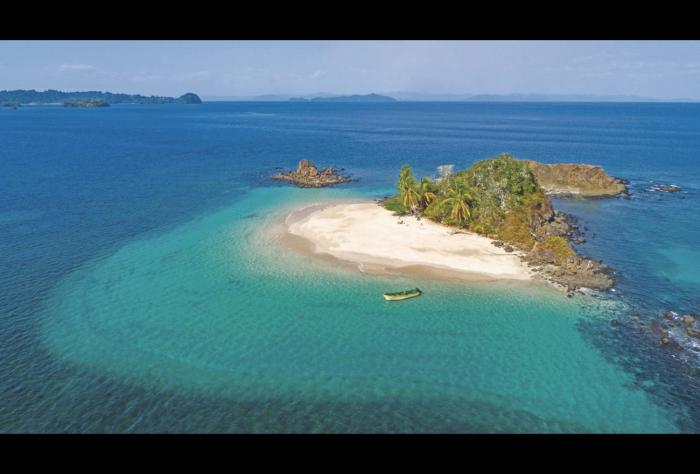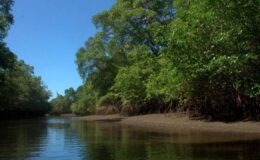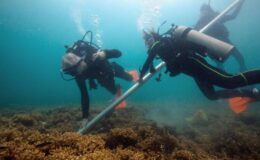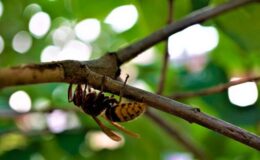MiAmbiente defends fishing in a protected area, raises more concerns.
- By : James Bryson
- Category : Environmental

GD!!! Lately I have been giving some props to the Panamanian government in regards to what was seemingly a refreshing upbeat take on environmental issues. Then I READ B.S like this and it just sets me back.
The Ministry of the Environment (MiAmbiente) alleged that the four licenses for fishing with pole and line art (pole and line) contemplated in the management plan of the Cordillera de Coiba Managed Resources Area protected zone is only for a “trial period of a year ” in order to analyze the feasibility or otherwise of the fishery with this system, which is not used in the country.
The clarification of MiAmbiente, through a statement, arises after the concerns of the Panamanian Association of Sport and Tourist Fishing and sectors of the fishing industry that have questioned the granting of licenses.
Although MiAmbiente has come out to explain the granting of licenses, the sports fishermen’s union also comes out to question another aspect contemplated in the management plan: the possible construction of processing plants for fresh products, canning and by-products of waste from the processes.
Of the four licenses that will be granted, MiAmbiente explained, only three vessels can operate simultaneously in the area, called commercial zone 2, which encompasses 26,000 kilometers of the 60,000 that the marine reserve has and is not part of the Coiba National Park, declared to heritage site. nature of mankind.
MiAmbiente’s statement cites the scientist from the Smithsonian Institute, Héctor Guzman, who points out that after the test year of fishing with rod and line art, the decision will be made in conjunction with the Aquatic Resources Authority of Panama (Arap) to decide if the Foreign vessels that obtain the license will continue to fish, but under the Panamanian flag.
The four licenses for foreign boats are other aspects that also concern the sport fishing union and some sectors of the fishing industry. Even during the debate, they expressed their opposition to introducing fishing with rod and line art, considering that although it is true it is selective, it does not discriminate ages of the species, which would cause fishing of fish in the reproductive stage without the possibility of saving them. .
For Guzman, the reality is different: “This selective fishing is reduced to practically 100%, which is an advantage, given the catch of fish with longlines approved in the country, which is not selective, fishing for thousands of species such as billfish such ace marlin. and he watches that they are the objective of sport fishing”.
In a conversation with La Estrella de Panamá, Guzman assured that pole and line art is considered “one of the most sustainable and selective” and, furthermore, that due to the size of the hook it allows the desired tuna to be fished, which avoids fishing for species in reproduction stage.
Luis López, from the Panamanian Association of Sport and Tourist Fishing, considered that the management plan, deep down, what it does is “introduce new activities in the fishing sector. “More than a management plan, it seems like a memo promoting new fishing activities that includes the establishment of fish processing plants,” he stressed.
In López’s opinion, a processing plant cannot be the subject of a protected zone. “It’s like setting up a sawmill in the Metropolitan Natural Park to take advantage of the area’s wood,” he said.
Guzman afirmó que el plan lo que busca es incentivar la inversión como la construcción de plantas procesadores como las que existen en Vacamonte, pero en áreas como el golfo de Chiriquí. Serían plantas procesadores certificadas que artes de pesca sostenible como caña y línea. “Todos esos está contemplado en el plan de manejo y se le presentó a los pescadores artesanales, semi industriales e industriales. Lo que proponemos es hacer un cambio de paradigma del sector pesquero”, recalcó.
The MiAmiente statement also cites José Victoria, director of Protected Areas and Biodiversity of the entity, in which he indicates that “efforts” are being made to establish the figure of governance for the management of the protected area for which “they will be summoned the key actors” identified in the management plan so that they contribute to the purposes of conservation and rational use of the resources of the protected area.



No Comments